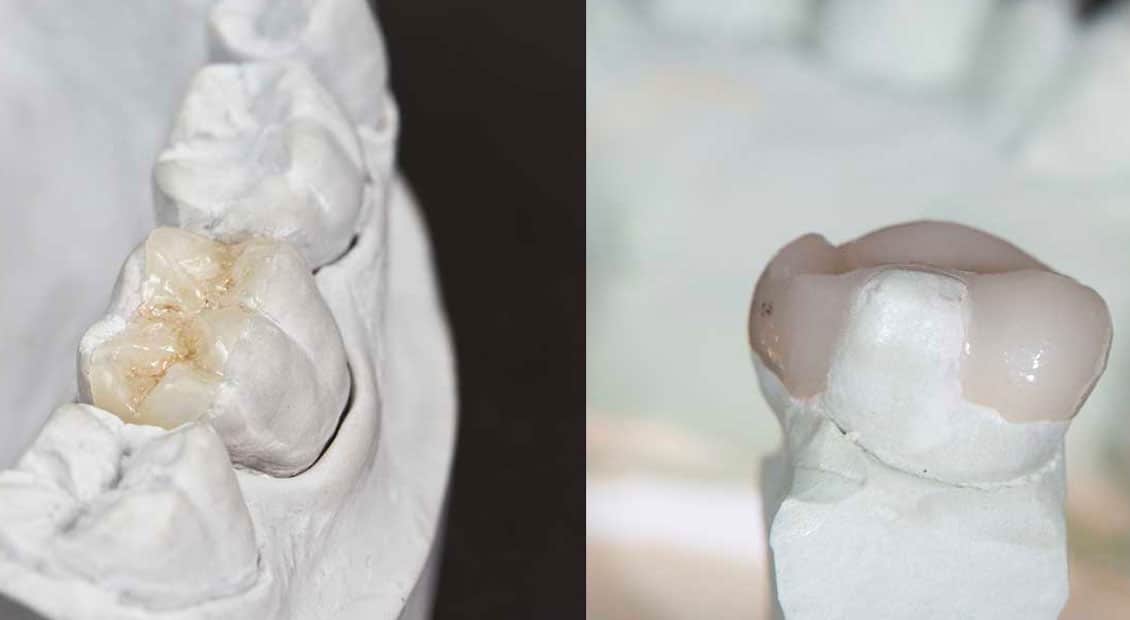
For larger cavities or a tooth with decay in more than one area, an inlay or onlay may be the best restorative solution.
The difference between an inlay and an onlay is the area of the tooth anatomy being restored. Inlays apply to cavities in the grooves, or pits and fissures, of the tooth’s biting surface. Onlays are used when the decay includes the tooth cusps. Both are used to restore areas where tooth decay is present and the tooth structure has been compromised.
Inlays and onlays can be made with either cast gold alloy or with tooth-colored ceramic or porcelain materials. A model of the patient’s natural tooth is made prior to any procedure so that the restoration can be made to replicate the shape and function of the natural tooth.
The shape and fit of the restoration can be verified before being cemented or bonded into place, and the inlay or onlay can be extremely durable.

